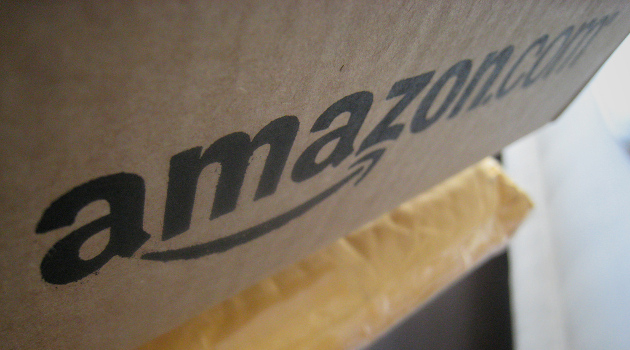I want higher wages.
Indeed, that’s a big reason why I favor better tax policy. I want low rates and less double taxation so we get more entrepreneurship and investment, which then will lead to higher productivity and more compensation for workers.
With this in mind, let’s look at some good news from a story in the New York Times.
Amazon said on Tuesday that it would raise the minimum wage to $15 an hour for its United States employees, a rare acknowledgment that
it was feeling squeezed by…a tight labor market. The raises apply for part-time workers and those hired through temporary agencies. …The new wages will apply to more than 250,000 Amazon employees, including those at the grocery chain Whole Foods, as well as the more than 100,000 seasonal employees it plans to hire for the holiday season.
This is an encouraging development. My support for pro-market policies is partly driven by philosophy (freedom to engage in voluntary exchange, etc), but also motivated by a desire to help people become more prosperous.
It’s too soon to say for sure, but perhaps we’re seeing evidence that last year’s tax reform is paying dividends. Of course, it’s also possible that we’re in a bubble that’s about to pop, but let’s hope that’s not the case.
In any event, there’s also some bad news in the story. Amazon’s decision may not simply be a business decision. It also might be a way of appeasing the crowd in Washington.
The company now employs about 575,000 people worldwide, up more than 50 percent in the past year…the pay of those workers has become a growing issue for activists… “I think they saw the writing on the wall…,” Senator Bernie Sanders of Vermont said in an interview after the announcement. …Mr. Sanders and labor organizers have criticized the wages and conditions of Amazon’s work force. …As recently as last month Amazon was resisting the pressure.
The most nauseating aspect of this is that Amazon’s boss issued a groveling tweet to Crazy Bernie.
Thank you @SenSanders. We’re excited about this, and also hope others will join in. https://t.co/kasWkkOhWo
— Jeff Bezos (@JeffBezos) October 2, 2018
Since I’ve shared the good news and bad news, now let’s look at the ugly news.
Having decided to boost wages for his workers, Bezos now want to impose higher costs on smaller companies that compete against Amazon.
The company said it would also lobby Washington to raise the federal minimum wage, which has been set at $7.25 for almost a decade.
This is a classic example of cronyism. A big company is using the coercive power of government to unfairly tilt the playing field.
The Wall Street Journal opined about this oleaginous development.
Jeff Bezos…the Amazon CEO showed he also has impeccable political timing. His decision to raise Amazon’s minimum wage to $15 an hour will
buy the tech company some political insurance… Mr. Bezos also announced that Amazon will now lobby Congress to raise the national minimum wage from $7.25 an hour. If Amazon is already paying $15, it’s no competitive sweat for Mr. Bezos to look virtuous for the media and politicians.
The WSJ also commented on the implicit extortion.
Speaking of government, Amazon’s wage increase may also buy some insurance against a looming assault from Congress. Bernie Sanders, the Vermont socialist and likely presidential candidate in 2020,
has introduced the Stop Bezos Act that would tax Amazon to finance government transfer payments like food stamps. …Mr. Bezos also wants to hold off the federal antitrust cops, but that may cost more than $15 an hour. Politics aside, Amazon’s wage increase wouldn’t be possible if the U.S. economy hadn’t risen out of its eight-year Obama doldrums. As always, the best way to raise living standards is faster growth, not political coercion.
Amen.
Sadly, this is not the first time Amazon has climbed into bed with politicians. It is currently seeking special handouts from state and local governments for a new headquarters complex.
P.S. If you want to understand why government-imposed mandates for higher minimum wages are misguided, there’s very powerful evidence from Seattle. Simply stated, workers lose jobs and income.
———
Image credit: Christian Harrison | CC BY-SA 2.0.

